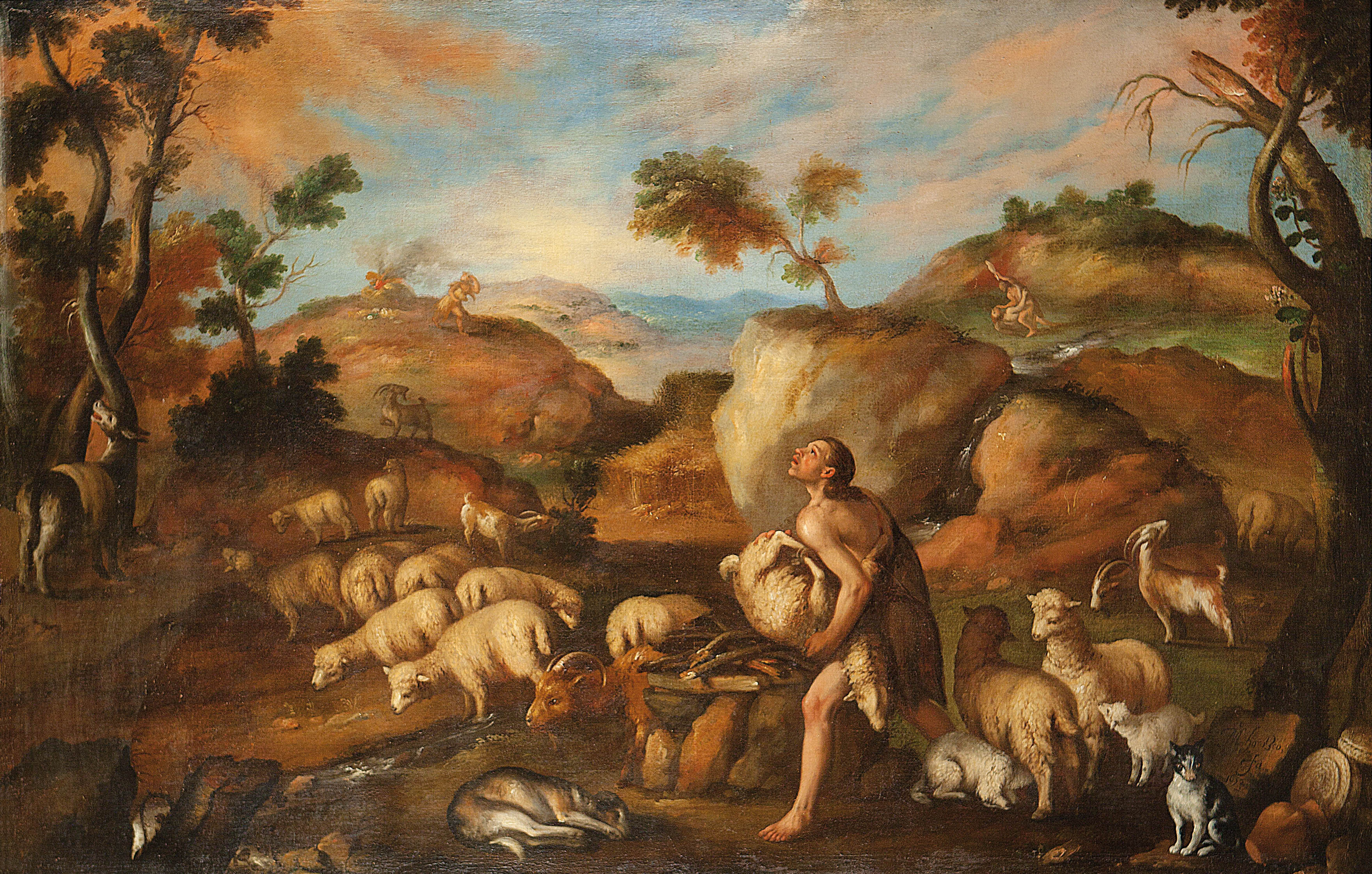Week 2: Genesis 4:1-16

Week 2: Genesis
4:1-16
At A Glance:
Author: Moses or "J"
Form: Ancient Origin Story
Themes: Violence, effects of original sin, envy, anger, sin, death,
mercy, justice
Summary: The last chapter
showed how sin broke the relationships between God and humanity, and how it
damaged the relationship between man and his wife. Here we see the dramatic and
immediate effects of original sin made manifest in Cain’s murder of his brother
Abel. Cain’s offering is not accepted by
God and in a fit of envy and anger he plans and kills his brother. God punishes Cain to a life unable to work
and unable to live in community, but in his mercy God spares Cain’s life and
offers him protection emphasizing his mercy over his justice.
Commentary
4:1 – Eve bares a son and names him Cain, which is a play on
the Hebrew word “qanah” meaning to create or produce. His name and her following pronouncement
reveal her joy at being able to participate in God’s promised blessing of
pro-creation. This is the manifestation of
one of the gestures that God made to the pair even though they are separated
from him by sin. Although sin has
separated them God shows his love and favor towards them.
4:2 – Eve bares a second son and names him Abel, his name is
the same Hebrew word used in Ecclesiastes for “vanity” and “emptiness” this
naming foreshadows his destiny at the hand of Cain. Already they are set in contrast with one
another as Abel cares for the flocks and Cain tills the soil.
4:3-4 – Cain and Abel bring their offering to the Lord (here
Yahweh). The “firstlings” mentioned are
the firstborn of the flock, particularly their fat most flavorful parts. The reason that the Lord accepts Abel’s
offering and not Cain’s is not obvious.
Scott Hahn in his Bible Dictionary writes that there may have already
been a sinful disposition within Cain as he brought his offering. Perhaps it is the case the Cain brought the
work from the ground in pride, after all “tiller of the soil” was the command that
God gave to his father, whereas “keeper of the flocks” was not an explicit
command. Could he have felt superior
seeing his gift compared to his brothers?
How often do I do things that I think are the most righteous things and
turns out that they are not righteous at all?
Do I look down on others if I think they do not follow God as closely as
I try to?
4:5-7 – When Cain finds that his offering is not what
pleases God his pride and self-righteousness turns to envy and wrath. God warns him of this building
resentment. This mentioning of “sin” is
the first use of the word in the Bible, God depicts it like an animal waiting
to pounce and destroy. God also tells Cain
that he must become it’s master. If I
cannot master the temptations in my life then sin will pounce and destroy. Do I feed my temptations or do I fight my
temptations?
4:8 – The word used for field here implies an unfrequented
country already showing Cain’s
intentions before he murders Abel. This
is the first physical death in scripture and it is among brothers. How far has humanity already fallen? The effects of original sin are made manifest
in Adam & Eve’s first born.
4:9 – God is omniscient, he already knows the whereabouts of
Abel, but again in his mercy offers the question as an opportunity for
confession and repentance, but he gets no such humility from Cain.
4:10 – In scripture blood is the source and essence of life,
thus it is the blood that cries out against Cain’s crime.
4:11-12 – Since the blood cried out against Cain from the soil,
this is where his punishment will come from as well. Cain becomes a tiller who cannot produce
fruit and is forced to wander about the earth.
4:13-15 – Cain asks for
mercy. His livelihood is gone, his home
is gone, and he fears that he may be killed by another person while he
wanders. Once again God shows his mercy
in the midst of punishment. God places a
“mark” (tattoo perhaps?) on Cain so that no one takes their vengeance in blood
against him.
4:16 – “Nod” is a term that means
“land of the wandering”.
Final Thoughts
I read this
story of fratricide as an examination of my own conscience. Perhaps I have never killed anyone, but wrath
and envy are both sins against the fifth commandment (I’m using the Catholic
count of the 10 Commandments where “Thou shall not kill” is the 5th).
In my own
sinfulness I can see how I would deserve a punishment like Cain, yet the story
emphasizes God’s mercy over God’s justice.
I have heard it said that justice is getting what you deserve, mercy is
not getting what you deserve, and grace is getting what you don’t deserve. I am thankful that God’s mercy is greater
than his justice, and I am thankful that God’s grace is given apart from my
merit. As a closing prayer I offer a
personal paraphrase of Ephesians 2:4-5 in my closing prayer of thanksgiving:
Oh
God your great love for me is rich in mercy, you have made me alive with Christ
even though I was dead in transgressions—it is by your grace that I have been
redeemed. Thank you! Amen.

0 Comments:
Post a Comment
Subscribe to Post Comments [Atom]
<< Home